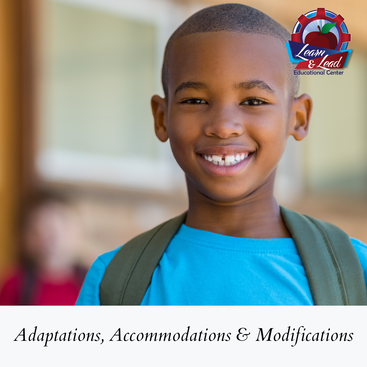 Earlier this week I met with a group of teachers to discuss Exceptional Learners in the Primary Classroom. After our session, I thought it would be helpful to share a post on the difference between adaptations, accommodations, and modifications. Clarity in this area can be helpful for both teachers and parents. Firstly, let me lay some ground work. When we are looking at ‘Special Education’ we are referring to the way that instruction is designed to meet the needs of exceptional students. This may require special materials, teaching techniques, equipment or even facilities. When we refer to exceptional students or learners we are referring to students that require special education and related services if they are going to reach their full potential. Many of our classrooms in the Turks and Caicos Islands are Inclusive Classrooms. This means that there is a general education curriculum being taught where students with or without learning differences learn together. For this to happen with success, educators often must ask themselves, how can the content I am teaching be adapted so that it can be accessed by all my students? Adaptations are changes in the way instruction and assessment are carried out to provide equal opportunity for students to achieve their learning outcomes. For exceptional learners, these adaptations can be essential for them to reach their potential. Adaptations can be either accommodations or modifications. Accommodations change how the students access the curriculum. They don’t change what students are learning, but how the content is presented or how they are showing what is being taught to them. Here are examples accommodations:
Modifications are a little different than accommodations. Accommodations don’t change the content or instructional level, whereas modifications do. Modifications take the individual students need into consideration and change what they are expected to learn. Here are examples of modifications:
Inevitably when we discuss accommodations and modifications, the idea of fairness arises. It’s important to highlight that fair does not mean equal. Fair means giving students what they need. Modifications and accommodations do not give students an unfair advantage but are designed to create level the playing field…in other words to bring equity into the learning equation. When we focus on building equity into our education system and our learning environments, we create opportunities for all students to thrive.
0 Comments
I have taught many of children in my career and have met so many different personalities. Every child really is unique. I have always been extremely fascinated with strong willed children. Their confidence, their decisiveness, their sense of justice and their ability to stand alone! I know that parenting strong willed children can be exhausting, but I also know that strong willed children also grow up to not only do great things, but to make incredible contributions to our society.
Compliance is something that we like to see as adults. Some children are naturally more compliant than others, and although we can shape compliance in many ways, we do need to take the personalities of our children into consideration. Strong willed children are generally spirited and courageous. The don’t fit well into the ‘seen’ but not ‘heard’ box. They thrive on independence. They are experiential learners that excel when they feel as though they are in charge of themselves. This sometimes creates power struggles in the household. Especially if your child has their heart set on something and needs to switch gears. Power struggles, as simple as which pajamas need to be worn, can create frustration for parents, and therefore it’s important to take your child’s personality into account when parenting. Before I give you some strategies for strong willed children, I want to remind you parents, that there are some amazing long-term benefits for our strong-willed children. As they mature, they are often driven and extremely self-motivated. They are less likely to give into peer pressure and they are not afraid to stand up for their rights or the rights of others. In my books, these are important reasons to be intentional about the way you parent your strong-willed children, and to be mindful of the impulse to 'put them in their place' or show them who is the boss. Here are some tips when parenting strong-willed children:
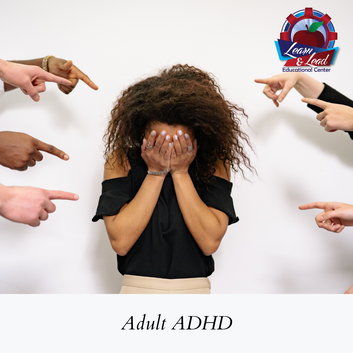 I often get questions about ADHD. These questions come from two directions. Parents who are concerned that their children are exhibiting signs of ADHD, and adults who are concerned that they may be. ADHD is not something that is cured or outgrown, but it is something that can be successfully managed. Like in children, Adult ADHD stands for attention deficit and hyperactivity disorder, a syndrome characterized by an impaired ability to regulate activity level (hyperactivity), attend to tasks (inattention), and inhibit behavior (impulsivity). ADHD is thought to be caused by a chemical imbalance in the brain that affects the parts controlling attention, concentration and impulsivity. (Adultadhd.com) ADHD may affect how one learns but does not actually affect intelligence. Individuals with ADHD are often very quick minded and intelligent. The key to being successful for individuals with ADHD often lies in the individual’s ability to assess their strengths and use them to their advantage, and to assess their areas of struggle and tap into strategies to support these struggles. So, what does ADHD look like in adults? Predominantly Inattentive: The predominantly inattentive type is an adult that is often seen as very dreamy and often not paying attention but just in their own world. Overall, they have difficulty keeping their mind focused which affects their concentration in conversation and when executing tasks. These individuals often are easily bored. Which sometimes has them constantly looking for attention. Predominantly Hyperactive: The predominantly hyperactive type is the adult that just always seems on the go. They never seem to stop. Individuals in this category are often restless and have trouble sitting still. On the upside, they are often capable to fit more into a day than the average person because of their need to be constantly doing something. Predominantly Impulsive: Individuals that are predominantly impulsive often have a hard time controlling their immediate reactions. This can lead to difficulties controlling verbal outbursts and problems with addictions to gambling, shopping, substance abuse etc. Individuals that have ADHD can have difficulty filtering information. This makes it very easy to get distracted, to be impulsive and act before they consider situations properly and often not knowing when to stop. As you can imagine, these symptoms can have an effect on an individual starting a new job or continuing their studies or even raising a family. So how can one successfully deal with ADHD as an adult? Firstly, ADHD is a medically diagnosed disorder and it’s a good idea to consult your physician. Share your suspicions and get some feedback on whether medical intervention would be beneficial. Next, reflect on your recognizing areas of strength and areas of concern. Start by writing a list. Having this list will give guidance on areas that need to be tackled. Here are my top 6 helpful tips for Adults with ADHD.
|
Author
Yolande Robinson, M.Ed. PodcastShifting Perspectives is a conversation with Yolande and Latasha that challenges Listeners to fuel themselves with diversity in the way they think, the way they work, the way they parent and the way they live their lives.
Listen to Shifting Perspectives on Apple Podcasts, Audible, Amazon Music, Spotify, Google Podcast, Stitcher, Pocket Casts, Overcast, Castro, Castbooks, or Podfriend. Archives
April 2024
Categories
All
|
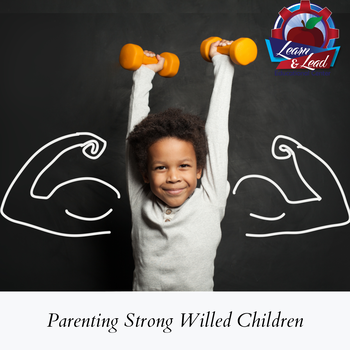
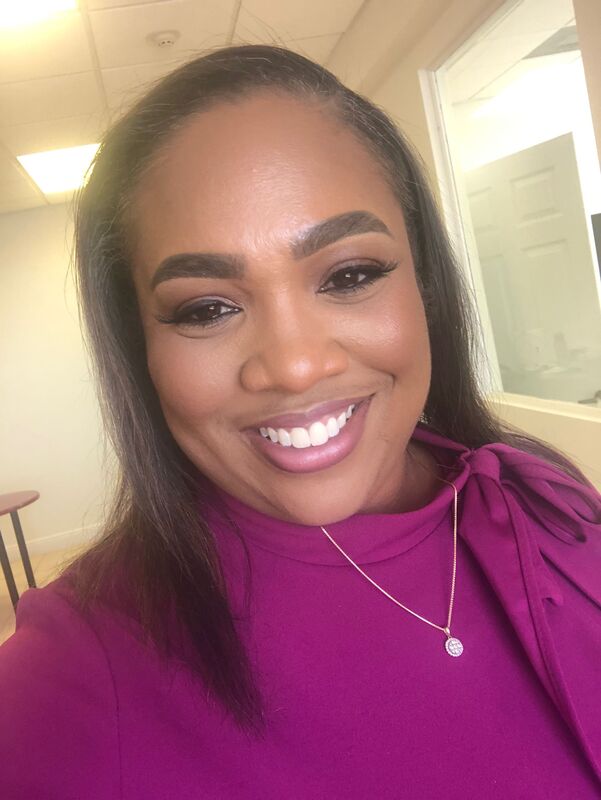
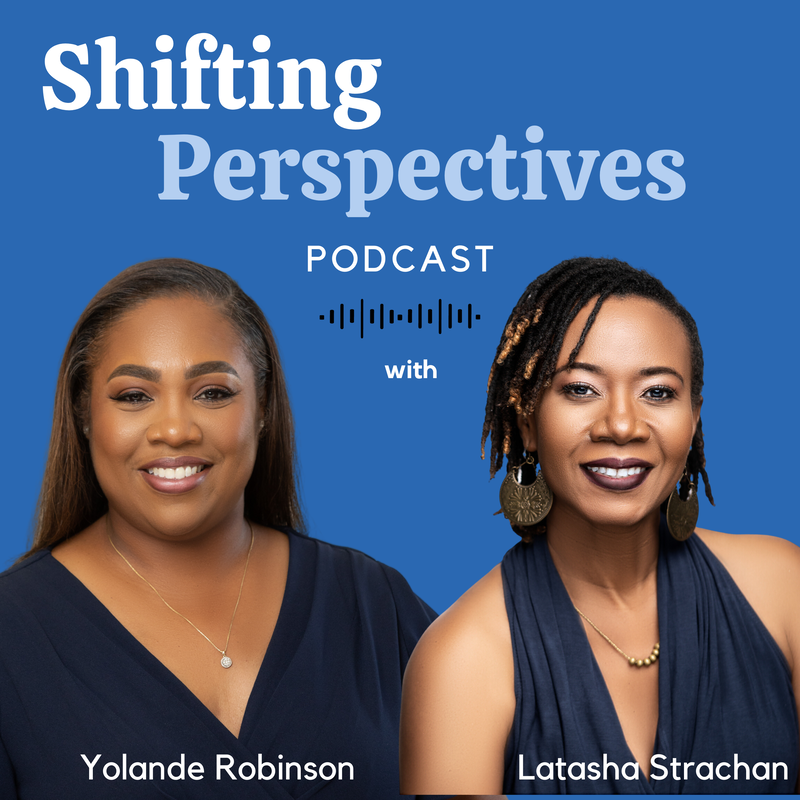
 RSS Feed
RSS Feed